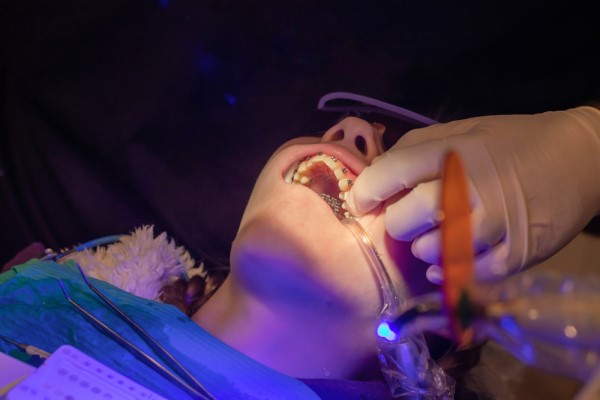4 Tips for Dental Bonding Aftercare

Dental bonding is a common practice in dental care, as dentists will use it in a number of treatments and procedures. Bonding holds devices such as crowns, bridges, and veneers together. It may also be useful in reshaping teeth and restoring their appearance. Bonding material is strong and durable, but it is prone to breaking under certain conditions. If you have a procedure where the dentist uses bonding, there are essential steps you should follow to preserve it.
How dental bonding works
When a patient has a damaged tooth and other cosmetic needs, the dentist will use bonding to restore the tooth. This process requires a few important steps. The dentist will first roughen the surface of the tooth. A liquid is applied to the tooth, which helps the bonding material stick effectively. The dentist puts the bonding on, which is a composite resin material. After doing this, the dentist will use a UV light to harden it quickly.
Avoid foods and beverages that stain
In the first few days after a procedure with dental bonding, patients should not eat and drink foods and beverages that can cause discoloration. These include coffee, tea, wine, and cola. Foods such as tomato sauce and berries can have the same effect. After this period, the bonding will not be as susceptible to staining.
Maintain good oral health care
Getting treatment such as a crown or veneer does not exclude the patient from keeping up with proper oral hygiene. It is just as critical to maintain healthy, strong teeth after dental bonding has taken place. Brushing at least twice a day with fluoride-based toothpaste and flossing daily will help to preserve the bonding. This will prevent tooth decay and gum disease, which could force the filling to crack or fall out.
Stay away from certain foods
After dental bonding has helped to repair a tooth, the patient should avoid hard foods. This includes many types of candy. The patient should be cautious about eating foods such as popcorn and biting into chicken bones, ice, and other items that could break the bonding. Sugary foods can also eat away at the bonding, causing deterioration.
Keep coming to the dentist’s office
Regular dental visits are also a good way to extend the life of dental bonding. A typical checkup consists of a teeth cleaning and an examination from the dentist. The dentist will inspect the bonding and make sure it is holding up well. If the dental bonding is weakening or starting to break away, the dentist can make the necessary repairs. Replacing the bond might be necessary too. The dentist might also offer suggestions on effective care for the bonding and what the patient can improve.
Keep your new smile intact
Dental bonding is vital in procedures that repair teeth. Restoring your smile would not be possible without this process. You want it to last and be effective for as long as possible. If you follow these tips, you can enjoy strong bonding of dental restoration devices to your teeth.
Are you considering dental bonding in the Gainesville area? Get more information at https://princewilliamdental.com.
Check out what others are saying about our dental services on Yelp: Dental Bonding in Gainesville, VA.
Recent Posts
Dental bonding is not a permanent solution. This is in contrast to dental veneers, which are considered a permanent solution and are used for similar reasons as dental bonding. However, dental bonding can last for several years if the teeth are cared for properly.The following discussion highlights what the dental bonding procedure involves and why…
Dental bonding can fix minor to moderate concerns with teeth, such as chips, cracks, worn-down enamel, and more. Read on to learn more about dental bonding and its uses. It is helpful to understand how dental bonding can benefit your oral health to determine if treatment is right for you or if another form of…
Dental bonding is a multi-purpose procedure that provides patients with restorative and cosmetic benefits. Improving the way a person’s smile looks helps to increase their confidence, and restoring damaged teeth protects them against a wide range of dental and general issues.Repairing teeth with dental bonding does not require the dentist to make any permanent restorations…
Dental bonding is a great way to address oral health and cosmetic issues like damaged enamel and chipped or cracked teeth. Read on to learn more about dental bonding. Dental bonding is minimally invasive and considered safe for patients.Every patient should evaluate all available types of restorative dentistry to address their specific oral health concerns…


